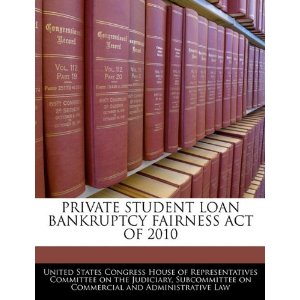
Tuition fees and other academic expenses can be a problem not only for parents but for students as well. With the currently dwindling economy, it is hard to determine if it is still possible to attain quality education for free. Thus, it is important to exhaust every possible avenue available in order to ensure that one will have the chance for a brighter future through good education.
One of the common lifeline’s of financially challenged families is student loans. Whether it is a federal or private student loan, students avail of these opportunities in order to continue their studies. Although federal student loans offer lower rates, they usually set a limit to the amount being borrowed, and most of the times, this amount is not sufficient in covering a student’s educational expenses.
Thus, a private student loan is a good alternative, it not a supplement to the federal student loan that students avail of. Although this type of loan mostly depends on one’s credit ratings, it is far more flexible as compared to a federal loan. So the question arises: what are the benefits of private student loans?
First, private student loans are not that strict when it comes to their requirements. Almost everyone can apply for a loan, and only minimum requirements like unofficial transcript of records or letter of acceptance from the school are needed in order for your loan to be processed. Second, private student loan companies offer better customer service assistance. They make sure that you are well-taken care of, and that they are able to answer your every concern. Lastly, with private student loans, you can easily consolidate your other private student loans into one manageable account, making it easier for you to pay off your past and existing loans.
When choosing for a private loan company, make sure that you check out all of your options by comparing their rates, their payment terms and their reputation when it comes to their services. Ask around, ask as many questions as you can when it comes to hidden fees, interest rates, and pre-cancellation penalties. It is best to know everything before applying for a loan.
Earning a degree may be hard, more so if you are financially challenged, but it is good to know that there are companies who are willing to lend a hand into ensuring that you get that degree.
 There is no sign on the horizon that the price tag of a college diploma will go down in the next few years. It is thus natural that more students are taking out loans to finance their postsecondary education. Loan skeptics say that private student loans are traps unless you finish school and get a job. Despite the high cost, entirely foregoing your chance to get into college is more detrimental since your chances to get a good salary will be substantially reduced.
There is no sign on the horizon that the price tag of a college diploma will go down in the next few years. It is thus natural that more students are taking out loans to finance their postsecondary education. Loan skeptics say that private student loans are traps unless you finish school and get a job. Despite the high cost, entirely foregoing your chance to get into college is more detrimental since your chances to get a good salary will be substantially reduced.


 This financial quandary is amplified by the fact that non-degree holders earn significantly lower than those with a college diploma. Modern job roles, especially the high paying ones, include a Bachelor’s degree as one of the minimum qualifications. In terms of annual salary, college graduates earn an average of $52,200 versus the $30,400 of high school graduates. At this point, it’s really just simple math: the more you earn, the more money you can use to pay off debt.
This financial quandary is amplified by the fact that non-degree holders earn significantly lower than those with a college diploma. Modern job roles, especially the high paying ones, include a Bachelor’s degree as one of the minimum qualifications. In terms of annual salary, college graduates earn an average of $52,200 versus the $30,400 of high school graduates. At this point, it’s really just simple math: the more you earn, the more money you can use to pay off debt. Contrary to popular belief, today’s students are very much aware of the horror stories related to private student loans. However, many experts now agree that being scared to take out a private student loan debt can hinder the realization of a person’s full potential and can wreak greater financial havoc than staying out of debt. This is glaringly based on how much a college graduate can earn versus a non-degree holder. In a lifetime, someone with a Bachelor’s degree make $2.1 million which dwarfs the $1.2 million lifetime earnings of a high school graduate.
Contrary to popular belief, today’s students are very much aware of the horror stories related to private student loans. However, many experts now agree that being scared to take out a private student loan debt can hinder the realization of a person’s full potential and can wreak greater financial havoc than staying out of debt. This is glaringly based on how much a college graduate can earn versus a non-degree holder. In a lifetime, someone with a Bachelor’s degree make $2.1 million which dwarfs the $1.2 million lifetime earnings of a high school graduate.


